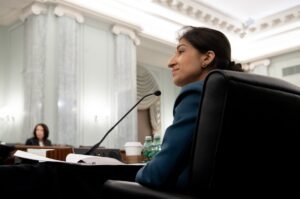Members of the Congressional Black Caucus have written to the United States’ Acting Secretary of Labor, Julie Su, expressing concerns over the disproportionate impact tech layoffs could have on Black workers, according to a letter seen by TechCrunch.
First reported by The Grio, the letter contains a list of questions regarding the steps the Department of Labor has taken to monitor the impact of tech layoffs on African Americans, its regulations around business practices, and what the DoL has done to ensure recent Supreme Court cases are not being used to undermine corporate DEI practices and budgets.
More than 240,000 jobs have been eliminated this year due to layoffs in the tech industry. The worry here is that the “last in, first out” approach to tech layoffs commonly employed at companies may impact new, less senior and “non-essential” employees, who are most likely to be minorities.
“Laying off the most recent hires directly impacts groups of people who benefited from new diversity policies implemented in response to heightened race-based conversations in 2020,” the letter said.
“We’ve seen that Black, Brown, and women tech workers have borne the brunt of layoffs while companies have enjoyed billion-dollar profits,” Missouri Rep. Emanuel Cleaver, co-chair of the CBC, told TechCrunch. “Congresswoman Barbara Lee and I, as co-chairs of CBC TECH2025, are asking the administration to take action to address this harmful and problematic trend.”
The Department of Labor has not yet responded to the letter, which is dated December 15. The Department of Labor and Su did not immediately respond to requests for comment.
The tech and venture industry have faced a downturn these past few years. Following George Floyd’s murder in 2020, many companies made promises to support the Black community. But as the market dipped, diversity pledges have been unfunded, DEI jobs have been cut, and venture capital funding to Black founders continues to dip quarter by quarter.
The CBC is stepping up. Last week, it wrote to Sam Altman and the OpenAI board, asking the company to “move expeditiously in diversifying its board to be inclusive of subject matter expertise with perspective from the African American community.” The OpenAI Board currently does not have any women or people of color.








